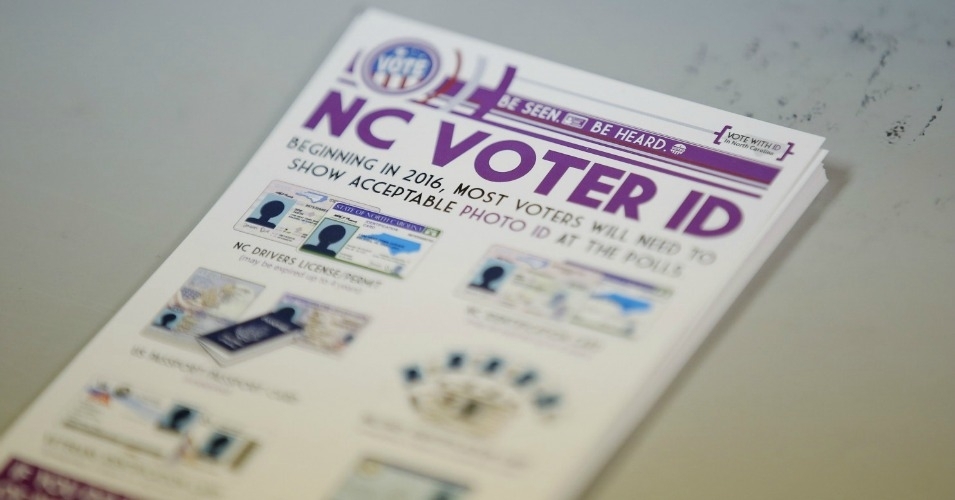No More Stolen Elections!
Unite for Voting Rights and Democratic Elections
Voting Rights Victory as Supreme Court Refuses Stay for NC Restrictions

In a victory for voting rights and reprieve for democracy ahead of November's election, the U.S. Supreme Court on Wednesday refused to reinstate controversial voting restrictions approved by Republican lawmakers in North Carolina.
"Politics as usual is no longer acceptable in our State, and the legislature cannot erect barriers to plainly undermine the growing voting strength of African American and Latino voters. It is time to move forward toward a shared prosperous future for all North Carolinians and to heal the core of our democracy in this State and in this nation." —Rev. Dr. William J. Barber II, NC NAACP
In 4-4 split of the court, the justices issued a single-page ruling which denied a request by the state to issue a stay of a lower court ruling issued earlier this summer that said the voter restriction law—which included strict voter ID requirements, a curb to early voting, and the end of pre-registration for young voters—was unduly discriminatory against African-Americans, the elderly, and other vulnerable voting blocs.
The ruling means the lower court ruling stands and that those restrictions will not be in place for the coming election. As CNN notes, the ruling comes as major victory for "civil rights groups and the Department of Justice, which argued that it had a disparate impact on minority voters. In July, a three-judge panel of the Fourth Circuit Court of Appeals held that provisions of the law targeted 'African-Americans with almost surgical precision.'"
Voting rights advocates on Wednesday immediately celebrated the court's decision as a victory for voters in North Carolina and a hopeful signal for similar legal battles nationwide.
"The Supreme Court was correct to deny North Carolina’s last-ditch effort to undermine African-American voter participation in the November election," declared Dale Ho, director of the ACLU’s Voting Rights Project, in a statement. "This ruling means that thousands of voters who would have been disenfranchised will now be able to participate in the presidential election."
Rev. Dr. William J. Barber II, president of the North Carolina NAACP and leader of the Moral Monday movement, also championed the ruling.
"Today we achieved another major victory for justice, African Americans, Latinos, and all North Carolinians," said Barber. "The highest Court in the land has rejected the State’s efforts to implement election provisions found by the 4th Circuit Court of Appeals to have been enacted with discriminatory intent. This critical rejection of the State’s position will allow the people of North Carolina to exercise the fundamental right to vote this November without expansive restrictions by racist politicians or racist policies."
Writing for The Nation in the wake of the ruling, journalist Ari Berman, who has extensively covered the national trend of Republican-led efforts to curb voting rights and poll access, said the Supreme Court ruling is a definitive win but cautioned that voters in state remain under threat:
This is a huge victory for North Carolina voters and will make it easier for hundreds of thousands to cast a ballot this November.
However, the fight for voting rights is not over in the state. Even after the 4thCircuit called cuts to early voting “as close to a smoking gun as we are likely to see in modern times,” GOP election commissioners are continuing to brazenlycut early voting days and hours in local counties. The executive director of the North Carolina Republican Party, Dallas Woodhouse, urged Republican-controlled election boards to “make party line changes to early voting” by adopting fewer early voting days and prohibiting Sunday voting, when black churches hold “Souls to the Polls” mobilization drives, and polling places on college campuses.
For his part, the NAACP's Barber said the ruling should fortify the determination of North Carolinians who fought against the restrictions and pro-democracy advocates everywhere.
"Politics as usual is no longer acceptable in our State, and the legislature cannot erect barriers to plainly undermine the growing voting strength of African American and Latino voters," Barber said. "It is time to move forward toward a shared prosperous future for all North Carolinians and to heal the core of our democracy in this State and in this nation."
GeneralNo More Stolen ElectionsNo More Stolen ElectionsNo More Stolen Elections